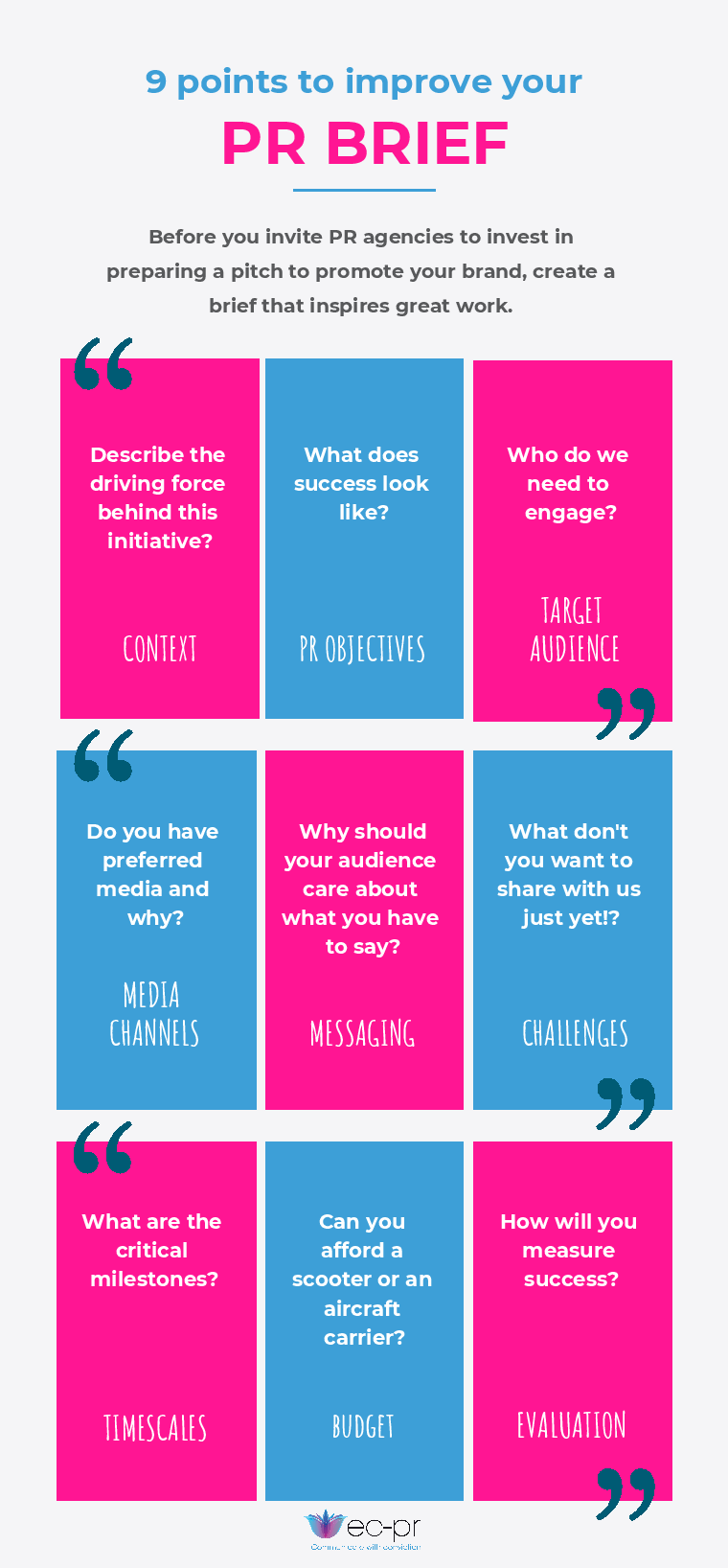
Your 9-point plan for writing the perfect PR brief
No matter what market you occupy, if you’re looking to reap the benefits that a PR agency can provide, you must first establish what you want to achieve, how you will measure success, who your audience is and what needs to be said in order to achieve your outcome.
By preparing a PR brief, PR agencies can fully understand your thinking and be specific in their responses.
There are many ways to write a PR brief – below are the fundamentals that you need to include. Whether that B2C or B2B – the principles are the same.
1. Context:
Where did this project come from? What challenge or change within the business has led you to look for external help? What is the driving force behind the desire for a step-change?
2. PR objectives:
What is the purpose of the engagement? Create precise objectives that are measurable and realistic. The process of documenting your objectives will help you rationalise and fine tune them – something the agency will also do so, between you, a set of KPIs can be developed and agreed.
3. Target audiences:
Who do you want to communicate with? Outline who is important to you and your business; provide as much detail as you can about your key influencers and decision makers; share your stakeholder research – the tender process should not be a guessing game but the opportunity for you to access ‘best-in-class thinking’ to address your challenges.
4. Communication channels:
Indicate how you’ve delivered your communication in the past and to what degree; if there is a business driver for a channel, be explicit and explain why. For example, ‘Our CEO wants to build his profile and is aware that a competitor is all over X podcast(s).’
5. Messages:
What are you trying to say? Do you have a communication strategy? If not, what elements do you have and what needs to be developed? Share any research that you have regarding message validation.
6. Potential challenges:
Think about the problems you may have to address; this may include internal resistance to, or unfamiliarity with PR; this will help shape the response and manage expectations.
7. Timescale:
Consider questions such as: When do you want your PR activity to start, and what are you hoping for in terms of reporting timeframes and contract duration?
8. Let’s talk money:
Specify how much money you are willing to spend because this will influence the type and range of activity you can afford. If in doubt use our PR Packages document which tells you more about what PR costs.
9. Evaluation:
Reflecting on point #2 above, think about how performance will be measured; do you have a business requirement for a specific type of evaluation methodology or any preference for a particular platform?
A detailed PR brief will prevent misunderstandings and costly off-strategy mistakes and will enable your PR agency to get up to speed quickly and start delivering meaningful media engagement at pace – protecting and nurturing your reputation across your target audiences.
Subscribe to our updates
Stay up to date with the latest insights, case studies and PR guides.


